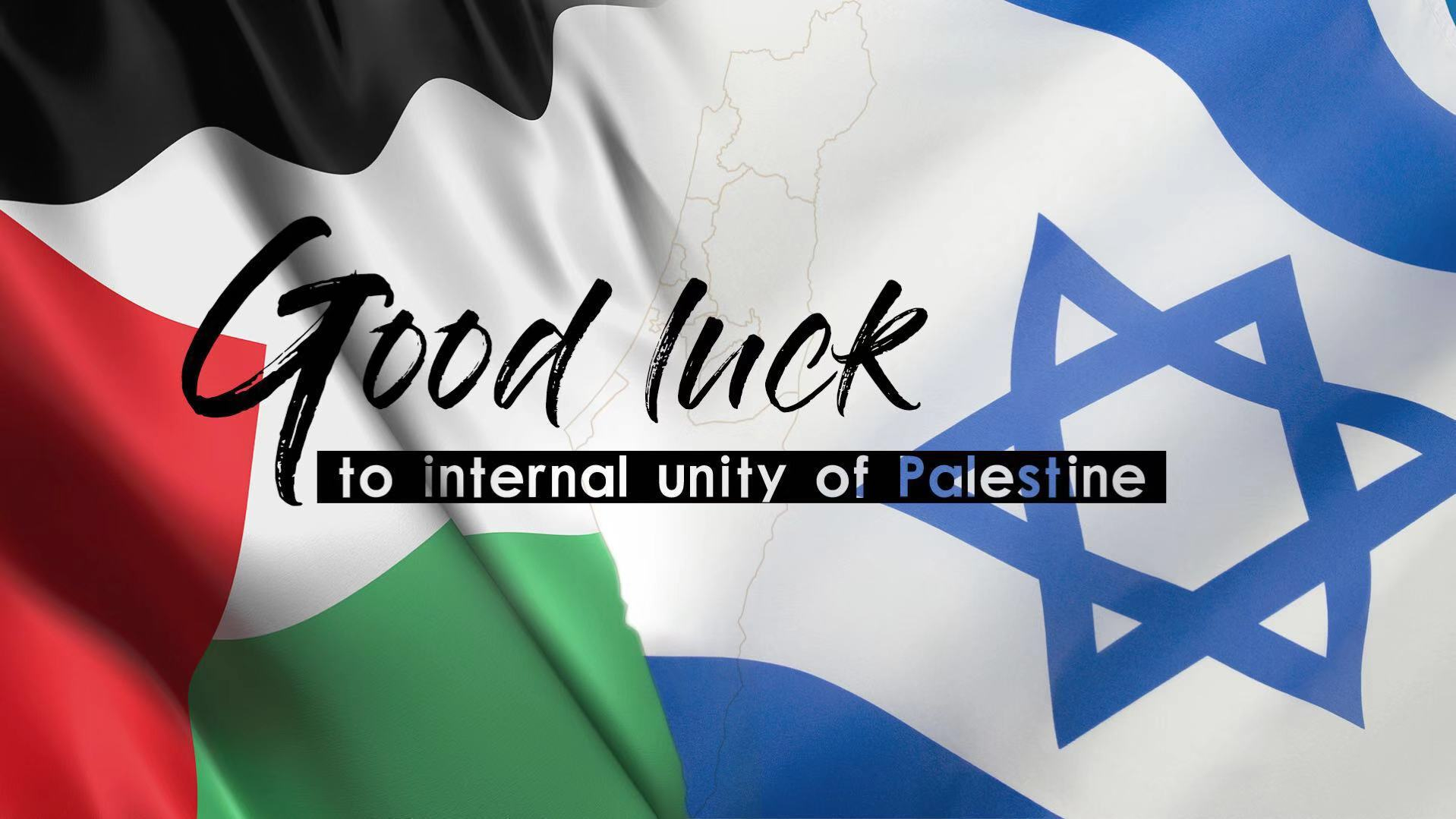
Opinion
22:47, 28-Jan-2019
Opinion: Palestinian PM offers to resign: Good luck to internal unity
Updated
17:01, 29-Jan-2019
Yin Gang
03:52

Editor's note: Yin Gang is a researcher at the Institute of West Asian and African Studies at the Chinese Academy of Social Sciences. He has written books on China's relationships with the Middle East. The article reflects the author's opinions, and not necessarily the views of CGTN.
Palestinian Prime Minister Rami Hamdallah said on Monday that he was willing to resign to support the efforts of Palestinian President Mahmoud Abbas to form a new government.
Hamdallah welcomed the recommendations of the Fatah Central Committee to form a new government, and has "put his government at the disposal of President Mahmoud Abbas," the government spokesman Yousef al-Mahmoud said in a statement.
The offer comes after Palestine experienced another "difficult year" in 2018, with unprecedented pressure in diplomacy, finance and internal affairs. Palestinian issues were further marginalized in the international community.
For a long time, the United Nations Relief and Works Agency for Palestine Refugees in the Near East, or UNRWA, spent more than one billion U.S. dollars in international donations every year, of which nearly 50 percent came from the United States.
Meanwhile, at least one-third of the annual government spending by the Palestinian National Authority (PA), which is more than three billion U.S. dollars, came from foreign aid, of which the U.S. often accounted for more than half.
Washington had been providing aid to ensure the normal operation of UNRWA and PA in order to avoid chaos.
However, the Trump administration has made substantial cuts to the two foreign aid items.
After halting the payment of 65 million U.S. dollars to UNRWA in January last year, the share of U.S. financial support for this institution has dropped from 50 to 10 percent. Even worse, the very existence of UNRWA has been questioned by Israel and the U.S.
Meanwhile, the U.S. annual funding for PA has also been cut by 50 percent. Although China and European countries have increased their share of aid, the consequent huge deficit has caused great difficulties for PA's normal functioning.
As for the Palestinian internal affairs, the quasi-state has been divided for 11 years since Hamas took control of Gaza in 2007.
Under the mediation of Egypt at the end of 2017, Hamas and PNA reached another peace agreement and promised to hold new general elections in 2018. However, the rules of the elections have not been formulated yet. The last election was held 14 years ago.
Donald Trump is a thoroughly anti-establishment U.S. president. Ignoring the previous presidents' practice of just talking the talk, he not only officially recognized Jerusalem as the capital of Israel but also moved the U.S. embassy from Tel Aviv to Jerusalem.
Other countries followed, constituting a huge blow to the Palestinians and dashing the hope of having “one city and two capitals.”
The Israeli-Palestinian peace process was stalled in 2000.
During those past years, fundamental changes have taken place in Israeli-Palestinian relations, within Palestine, as well as in the attitude of the Arab world towards Palestine.
The Palestinian issue has no longer been regarded as the core issue of the Middle East, but merely an “underlying one of concern.”
Arab authorities are now most concerned about how to deal with Iran. To make that, they need to improve relations with Israel. In the process, the Palestinian issues have been further marginalized. Qatar, which provides financial assistance to the Hamas authorities in Gaza, has been alienated and isolated by several Arab countries.
All of these facts indicate that the Palestinians will face even greater challenges in 2019, not only from the outside but also from within. If Palestine is still unable to achieve real internal reconciliation this year, hold a new general election and form an effective coalition government, the Israeli-Palestinian peace talks will not be restored.
The reason for that is very simple. The ultimate goal of the Israeli-Palestinian talks is to realize a “two-state solution,” that is, an Israeli state and a Palestinian state. And that solution can never be reached among three parties.
In the absence of internal unity in Palestine, the “two-state solution” is reduced to an empty slogan of political correctness, and new plans to resolve the Palestinian issues will be proposed.
Under such condition, the “deal of the century” proclaimed by Donald Trump will never be reached.
Scriptwriter: Yin Gang
Animation: Pan Yufei
Voice-over: John Goodrich
Video and design: Li Linxi, Ma Yaru
(If you want to contribute and have specific expertise, please contact us at opinions@cgtn.com.)

SITEMAP
Copyright © 2018 CGTN. Beijing ICP prepared NO.16065310-3
Copyright © 2018 CGTN. Beijing ICP prepared NO.16065310-3